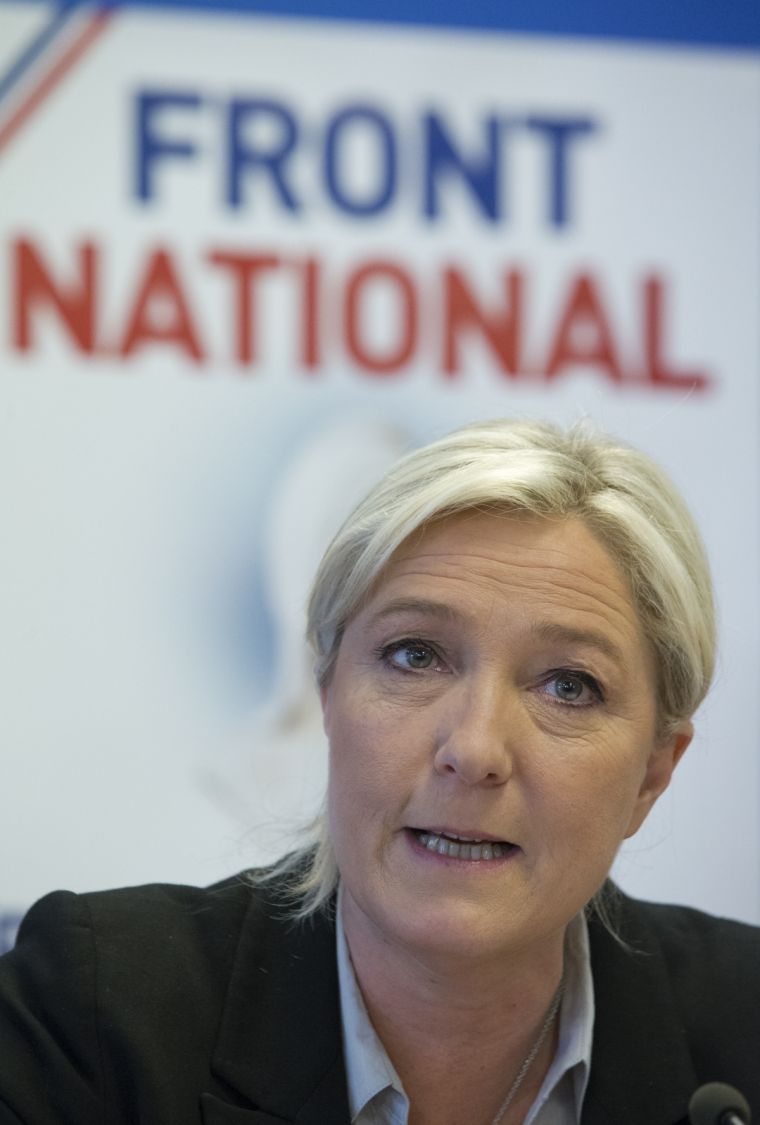National Affront: Why did France's extreme nationalist party come out on top?

"How can you govern a nation which has 246 types of cheese?" General de Gaulle once famously asked – presumably with an appropriately French shrug of the shoulders. With the far-right Front National coming first nationwide in the 2014 European elections, scooping up some 25% of the vote, the question is more pressing than ever.
Party leader Marine Le Pen's proud new claim to be heading up "France's leading party" is rather disingenuous, though. These elections were not for any level of national government, but to the European Parliament. Even there, far-right gains in several countries make no immediate difference; mainstream political formations will still be able to command a majority when new legislation is put to the vote. Domestically, the Front National has made significant progress recently in local council elections, but currently holds only a couple of seats in the National Assembly.
Some will have undoubtedly voted FN out of conviction, in the mistaken belief that there would be overnight change in France. But the vote also has a strong whiff of protest. France's elections usually have multiple rounds, and many voters probably assumed this one did, too. "In the first round you vote with your heart, in the second with your head", goes the saying – but in this case, it was the first (and only) vote that counted.
Poor communication has not helped. The FN's 25% share of the vote has been in headlines everywhere – the level of abstention in France (some 57%), rather less so. The actual outcome of the election in the European Parliament (a win for the mainstream conservative group) was the very last item mentioned, almost as an afterthought, in French radio news coverage the next day. Media focus on extremism may boost ratings and provide more frissons, but also it magnifies the phenomenon disproportionately. To make matters worse, the EU is chronically bad at selling itself. Apart from a caricature of petty regulations governing banana sizes, most people have little idea of what the European institutions do, or how. The Front National has thrived on this.
Domestic factors have also played their part. France's economy is sputtering; there has not been the political courage to implement the kind of far-reaching reforms that are needed for recovery. Mainstream politicians frequently lack the common touch and are perceived as belonging to an exclusive, self-serving club. A morass of moral and financial scandals have done little to dispel that impression; Marine Le Pen, meanwhile, has been masterful in exploiting her grass-roots image whilst simultaneously championing traditional values. She somehow manages to come across as a slightly rough-edged 'woman of the world' and at the same time preserve just enough respectability to keep the Front's more austere historic electorate on board. And unlike her father, who founded the party (but frequently got into trouble for provocative comments on issues like the Holocaust), she keeps very much on message. This message is a compelling blend of patriotism and exasperation with the status quo.
There's a clear anti-euro, anti-EU, anti-globalisation line and, clearest of all, a rejection not only of immigration (with a 20-fold cut in legal immigration envisaged) but also of immigrants. "National preference" for jobs, benefits and housing may be code for a particularly nasty form of nationalism, but it also points to a hankering after getting things back to how they used to be – a message that may even appeal to some believers.
So what might a Christian response to all this look like? The Bible queries the wisdom of asking "where are the good old days?" (Ecclesiastes 7:10, Message translation). As Christians, we're called to engage responsibly and intelligently with the issues of today, rather than trying to pull up the drawbridge or turn the clock back. I don't think the Front National or its ilk represent the right kind of engagement. I also believe we shouldn't fall into the trap of focusing on the extreme and the sensational – whether sensationally good or sensationally bad.
Like a good Christian life, good government is mostly about persevering in doing the right thing over the long term, not merely addressing a few hot-button topics. That's why my personal takeaway from this result is to encourage everyone around me to be more engaged in politics – not by looking for a Christian political party, but by being involved in the existing political process in ways that, broadly speaking, reflect the values of the Kingdom of God. Politics are never going to be perfect, and we may have differing opinions, but there must be more on offer than headline-hitting extremism or simply hand-wringing in response. It seems there are 246 types of cheese out there. Surely there's room for a little salt and light too?
Born in the UK, David Buick has lived in France since 1985 and has dual nationality. He is a prison chaplain, pastor, and freelance translator











